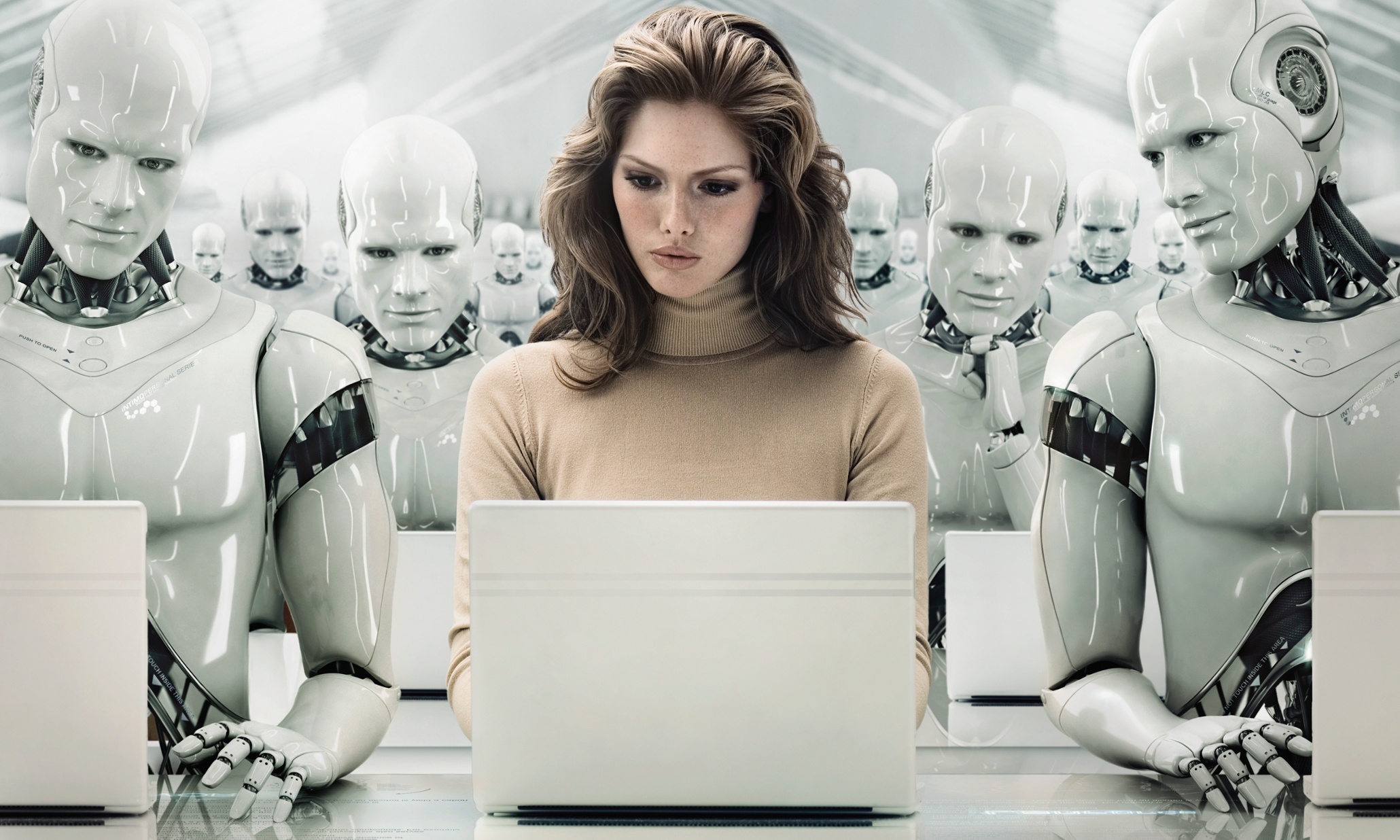With
the rise in AI, amidst the cheers that hailed the new arrivals, there were few
that suffered some anxious moments wondering ‘will I be out of a job?’ Finance
fuels the journey of life. Disruption had a negative connotation but the
perception has altered peculiarly in the parlance of information and
Technology. More so in Robotics.
 |
Image
source: telegraph.co.uk
|
So
far humans have been in the control of machines. What happens if it reverses?
Automation in large-scale, like manufacturing wherein a robotic arm could
effectively handle the operations of many a skilled workers and in effect
replace them. Public didn’t panic then other than sympathizing with the
misfortune that befell on the displaced workforce and largely embraced the
change and went about their lives. If robotic arm wasn’t artificial
intelligence that failed to give the jitters, why is that the, a superior and
smarter robot of the present makes us feel weak and vulnerable?
Could it be the ‘thinking
aloud’ of the leading lights about the advent of AI and its impact on humans
affect our composure or we become too complacent by ensconcing in the comfort
zone? It’s a rude jolt or a rough wake-up when a technocrat and an economist
point in the same direction and almost articulate alike. The imposing
power of artificial intelligence “will
eliminate a lot of existing types of jobs” by Bill Gates and former IMF
Economist Rajan raising reservation about the “anxiety
in middle class” because of the technology progress can be unsettling. It
sure doesn’t send the shiver down the spine, though apprehensions are shared by
profession about the doomsday.
What made us worry?
“Occupations
most at risk including administrative, clerical and production tasks” was
opined by Bank of England’s chief economist Andy Haldane. The possibilities
that Jobs from customer service to security analyst might be replaced in two
decades are dictated as real by some pundits. But quoting Bill Gates, who
famously quoted that the “shelf life of Intellectual Property is that of a
banana”, two decades must present the timeline for you to draw and discern the
postulation. Some say ‘possible and some ‘preposterous’, and it remains to be
seen what will be your stand in this scenario.
Look at the possible scenarios:
Chatbots: customer service
will turn out to more effective with computers answering customer calls. It
could send customer call executives reeling, but some employees given the
stress and at times toxic exchange and environment seems to embrace the change
– even before arrival?
Some
even speculate the ‘most at risk’ opportunities in employment would
be
- Anyone working in telemarketing
- Anyone stitching by hand
- Maths technicians
- Watch repairers
- Insurance underwriters
And the recently introduced Betty
of Milton Keynes who actually joined as ‘trainee robot manager’ engaged in
a trial run for months, which can discharge several duties from monitoring
personnel on work to welcoming guests.
And some statistics as well:
The author feels fear is
misplaced. What happens in the breakdown of machinery? What about malfunction
or virus attack? Despite numerous attempts are made to insulate from the
onslaught, immunity is far cry.
Everyone
seems to be engrossed with Bots , Taco Bell announced the TacoBot, Microsoft
Tay , Facebook AI Assistant “M” and the list can go on.
Are you worried?
There were instances when
Robots failed and dismissed from service. In a recent occurrence, two
restaurants in China were forced to shut down due to the faltering
Robots which couldn’t pour water or take orders from customers.
Another occurrence worth
mentioning would be Microsoft’s Tay which malfunctioned and retired from
service. Microsoft subsequently offered an apology and admitted that despite
factoring many scenarios, it wasn’t prepared and made a critical
oversight for this specific attack. Microsoft Tay was pulled offline
and will be featured once ready in address all possible human misuses. For now
it’s not possible to predict all ‘all possible human interactive misuses
without learning from mistakes’.
So we would be unduly worried
to fear professional prospects robbed by robots. Even in the worst case
scenario, human will upgrade themselves. The author took this survey and
responded in the negative. The result depicted as under reflects that the
majority negate the worry factor.
(source: http://www.telegraph.co.uk/finance/economics/11994694/Heres-what-will-happen-when-robots-take-over-the-world.html)





